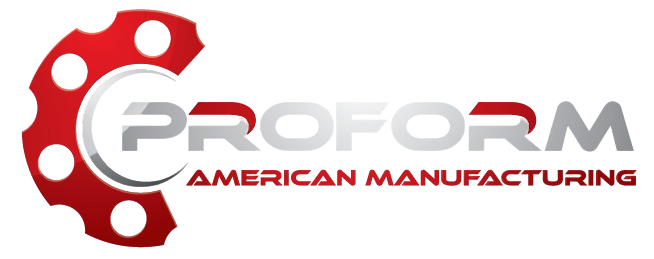The Importance of Precision CNC Machining
Precision CNC (computer numerical control) machining is required for manufacturing parts in many industries, from medical and aerospace to automotive and other consumer goods. Whether the part is mechanical or cosmetic, it requires precise machining to ensure form, fit, and function. Using CNC machining removes the possibility of human error and allows for precision and uniformity in production runs of parts. Proform American Manufacturing expert machinists have strong knowledge of mechanical manufacturing and precision CNC machining, which sets us apart from other machine shops or manufacturing companies. Further, our dedication to partnering with our customers is unparalleled. When your business is ready to begin the manufacturing design process for specific CNC machined components, there are a number of potential precision machining pitfalls to avoid. Proform American Manufacturing is here to serve as an extension of your business, working with you throughout the entire manufacturing process. Our goal is to deliver quality products with the most time-efficient and cost-effective product development cycle possible.
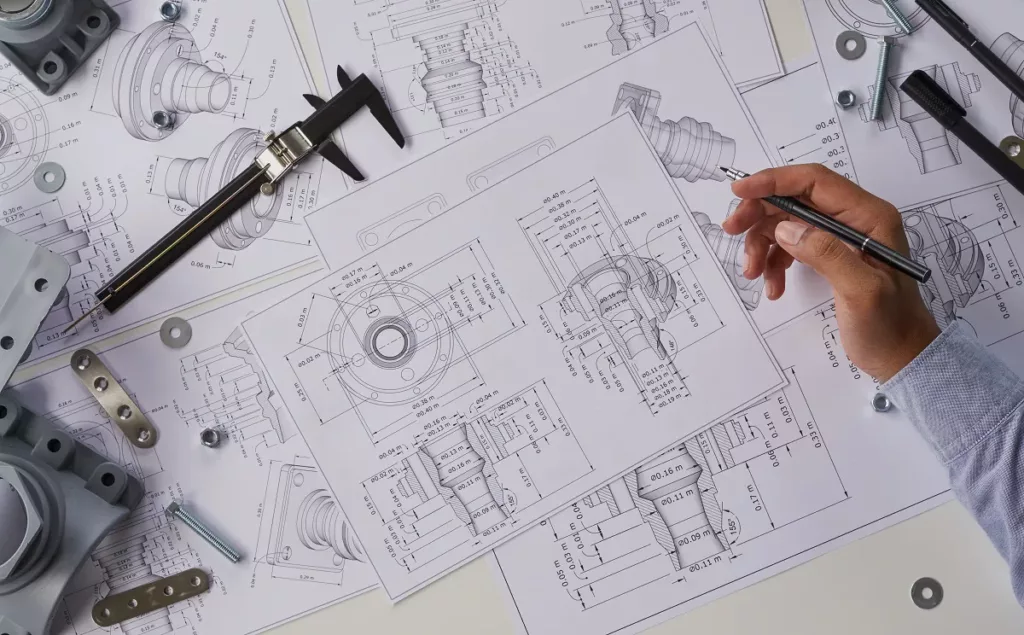
Precision Machining Process Starts With New Product Introduction (NPI)
First, take into consideration the New Product Introduction (NPI) process so that your business can develop an effective NPI. An NPI is a clear, cohesive, and comprehensive plan that maps the steps of taking your product from initial concept to final form. For most precision CNC machined products, there are six main steps necessary in an NPI:
- Define: What is the product? What is the purpose of the product? What is its form and function? How will it be utilized by the customer?
- Feasibility: Is it possible to fabricate this product with available precision CNC manufacturing technology? Does this product make good business sense?
- Develop: Work with a trusted manufacturer to design precision machining blueprints with CAD or CAM to machine a prototype. Make necessary adjustments, creating functional prototypes until the part is ready for production.
- Validate: Does each component of the part work as intended in form, fit, and function? Check all possibilities before accepting the part design.
- Implement: Using precision CNC machining, your professional manufacturer machines the part with the shortest product development cycle possible. Your business markets and sells the product.
- Evaluate: How are sales? Is the product working as intended after extended use or does it need alterations? How might we improve the product moving forward?
The details of these steps will vary from product to product. Besides ending up with a product that is successful in form, fit, and function, your NPI should have several goals. These goals should include clear communication with your cnc precision machining professionals, fast product development cycle time (faster time to market), reduction of waste in the manufacturing process, and cost-effectiveness throughout the project. Proform American Manufacturing can help your business solidify an NPI that meets the needs of your business and of the individual product.
Machining Capabilities in The Precision Machining Process:
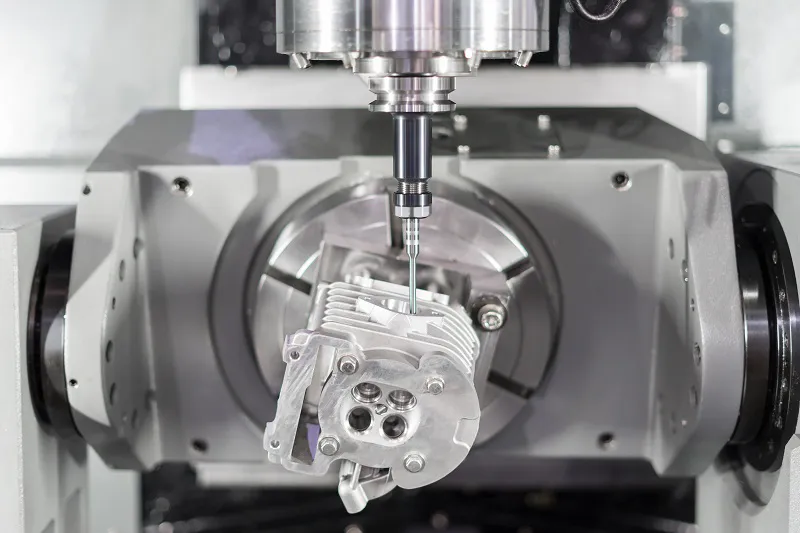 Second, it is critical to choose a manufacturer with the correct high precision CNC machining capabilities for your part. Proform American Manufacturing machinists are experts in subtractive machining, or the manufacturing process in which unwanted material is removed from a larger piece of material. This process, also known as CNC milling, creates the desired shape of the manufactured part. CNC mills use computer codes to make necessary cuts in a large piece of raw material, removing excess material to form the intended part. Turning machines or CNC lathes rotate the raw material at high speeds, while a fixed cutting tool removes the excess material. Depending on the complexity of the machined part, manufacturing processes vary. The manufacturing process requires either a number of different tools or a multi-axis CNC machine to manufacture parts to the correct specifications each time. Proform machinists offer precision CNC machining services. We utilize 5-axis CNC milling machines in our machining shop, which allow for precision in both simple and complex parts.
Second, it is critical to choose a manufacturer with the correct high precision CNC machining capabilities for your part. Proform American Manufacturing machinists are experts in subtractive machining, or the manufacturing process in which unwanted material is removed from a larger piece of material. This process, also known as CNC milling, creates the desired shape of the manufactured part. CNC mills use computer codes to make necessary cuts in a large piece of raw material, removing excess material to form the intended part. Turning machines or CNC lathes rotate the raw material at high speeds, while a fixed cutting tool removes the excess material. Depending on the complexity of the machined part, manufacturing processes vary. The manufacturing process requires either a number of different tools or a multi-axis CNC machine to manufacture parts to the correct specifications each time. Proform machinists offer precision CNC machining services. We utilize 5-axis CNC milling machines in our machining shop, which allow for precision in both simple and complex parts.
Tolerances For Precision Machining Parts
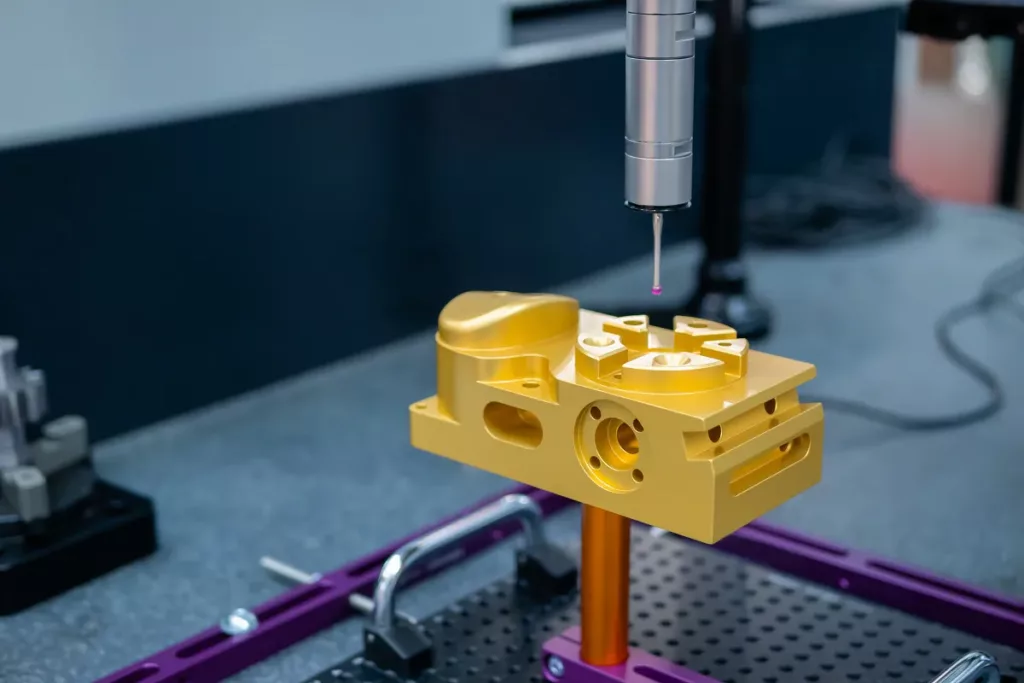 Third, the more complex or exacting a design, the more precision is needed in manufacturing execution. Tolerance is an important complexity aspect to consider when designing a part for precision machining. Tolerance is the amount of acceptable variance in the dimensions of a machined part. CNC precision machining allows for extremely tight tolerances. Through the precision CNC machining process, tolerances as tight as +/- 0.0005 inches are possible. For perspective, a human hair is approximately 0.002 inches wide. A precision CNC mill is capable of manufacturing parts with tolerances four times smaller than a human hair. With precision CNC machining, variance from part to part is almost nil. Proform American Manufacturing experts partner with businesses to strategize the appropriate precision CNC machining service and to determine the appropriate tolerances for a given part.
Third, the more complex or exacting a design, the more precision is needed in manufacturing execution. Tolerance is an important complexity aspect to consider when designing a part for precision machining. Tolerance is the amount of acceptable variance in the dimensions of a machined part. CNC precision machining allows for extremely tight tolerances. Through the precision CNC machining process, tolerances as tight as +/- 0.0005 inches are possible. For perspective, a human hair is approximately 0.002 inches wide. A precision CNC mill is capable of manufacturing parts with tolerances four times smaller than a human hair. With precision CNC machining, variance from part to part is almost nil. Proform American Manufacturing experts partner with businesses to strategize the appropriate precision CNC machining service and to determine the appropriate tolerances for a given part.
Temperature When Machining Parts:
Fourth, it is necessary to consider the temperature of both the material and the CNC machine in contract manufacturing. Failure to do so may cause stress in the product, resulting in damage, weak spots, or inconsistencies in your production run or between production runs. In CNC machined parts with tight tolerances, controlling the temperature of the material and the machine becomes more critical.
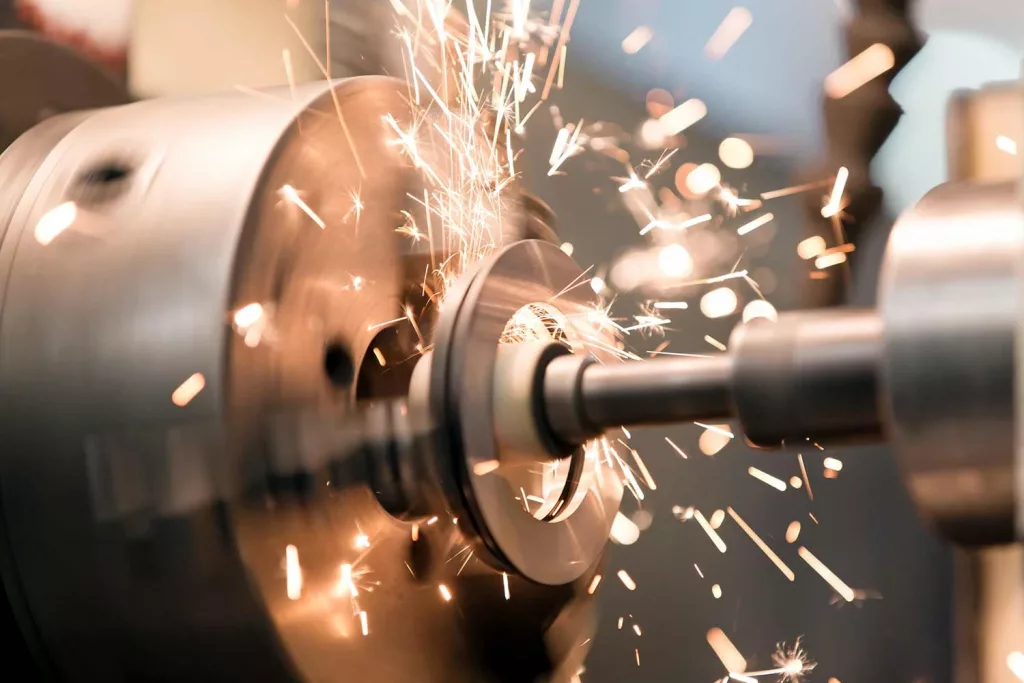
Even the heat from a machinist’s hand while a part is being inspected can alter the temperature of the part enough to change the tolerance. Calipers, micrometers, and other measurement tools that are designed with heat-resistant pieces are helpful in preventing body heat from being transferred to the part during necessary handling or inspection.
Precision CNC machines with built-in coolant chillers keep both the tool and the part at a constant temperature during machining. Cutting tools used in the manufacturing process also generate heat by creating drag during cutting. In an optimal cnc machining design, the part should chip or break away when cut. This reduces heat and is an important design feature for CNC parts with tight tolerances. In large production runs machined without constant temperature control, both the material and the machine get hot. When material temperature increases, the material expands. When the metal part cools, it shrinks, which can alter dimensions and tolerances significantly. Constant temperature for both machine and material during the precision CNC machining process is critical for the form, fit, and function of your part. Proform American Manufacturing machinists offer the highest quality CNC machining services in the industry and have temperature control capabilities in our machine shop.
Material Selection in The Precision Machining Process
Fifth, work with your CNC parts manufacturer to select the appropriate CNC machining materials for your precision machined part. Proform Manufacturing is experienced in fabrication services using steel, stainless steel, aluminum, copper, brass, and some exotic metals like titanium. Steel is known for its durability, corrosion-resistance, high tensile strength, and cost-effectiveness. These properties make steel a sound choice for many CNC machined parts used in construction and other industries. Steel is strong enough to withstand forces from natural disasters like hurricanes and tornadoes.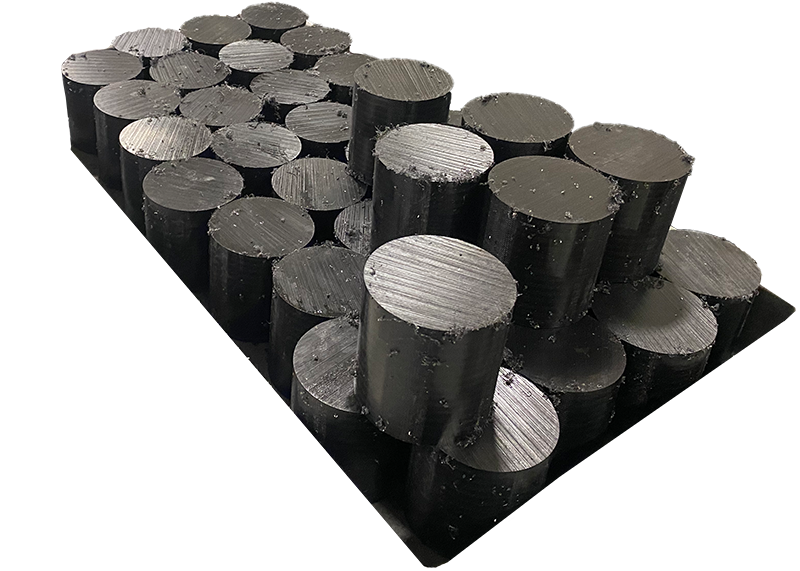 It is also one of the most sustainable and cost-effective material choices. Stainless steel is even more resistant to corrosion than steel. Stainless steel includes over 10% chromium in its alloys. The chromium is responsible for the added corrosion resistance, which makes stainless steel a wise choice for medical and other industries.
It is also one of the most sustainable and cost-effective material choices. Stainless steel is even more resistant to corrosion than steel. Stainless steel includes over 10% chromium in its alloys. The chromium is responsible for the added corrosion resistance, which makes stainless steel a wise choice for medical and other industries.
Aluminum is another material option, and is one of the most versatile metals used in CNC precision machining. It is malleable, strong, and lightweight, making it popular for construction and consumer electronic industries. Copper is an antimicrobial metal that is known for its thermal and electrical conductivity properties. For these reasons, copper is often used in medical and automotive industries. Brass is a copper alloy with enhanced corrosion resistance. Brass is ideal for mechanical applications that also require rust-resistance, like those found in the marine industry. There are multiple surface treatment options for each of these material choices as well. At our machining center, Proform American Manufacturing has the correct CNC machine or tool for any job. Proform MFG machinists will work with your business to ensure the appropriate material and surface treatment is used in your CNC machined part. It is our priority to deliver proper form, fit, function, and consistency in our machined parts with low time to market and cost-effectiveness throughout the product development cycle.
Machining Shops / Manufacturer-Client Relationship
Finally, the relationship between your business and your chosen CNC machinist is of the utmost importance. During the product development cycle, changes to the part design are often needed to make the project more time efficient and cost effective. It is critical that the manufacturer is transparent with your business about these changes using an established change management process. Proform American Manufacturing takes this transparency seriously. Proform MFG focuses on a cycle of growth with our clients by building manufacturer-client trust throughout each step of the NPI. We reliably deliver quality manufactured products to our clients on time and within budget. No matter how big or small the project, we at Proform American Manufacturing strive to earn and keep our client’s trust. Contact us today for a free quote for precision CNC machining services or any manufacturing needs.
